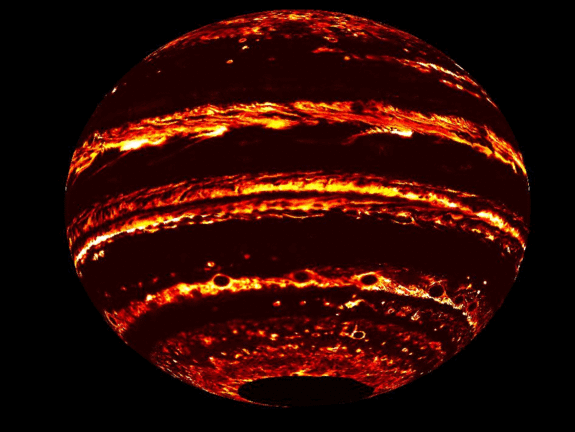MI weekly selection #234

Cyclones and auroras among Juno’s discoveries about Jupiter
Massive cyclones have been spotted near Jupiter’s north and south poles, and the gas giant’s auroras differ greatly from those of Earth, according to findings gathered by the Juno spacecraft in its first close swings by Jupiter’s poles. “Discoveries about its core, composition, magnetosphere, and poles are as stunning as the photographs the mission is generating,” said Scott Bolton, an author on a pair studies about the mission published in Science.
Ice crystals cause Earth’s twinkle
The Earth twinkles when viewed from space because of ice crystals floating in clouds. Alexander Marshak, a research scientist at NASA’s Goddard Space Flight Center in Maryland, analyzed reflections observed by the satellite Dscovr and found the tiny ice crystals are in clouds arranged in a way that creates sun glints.
Light stimulation in zona incerta causes uncontrollable eating in mice
A little-studied brain region called zona incerta may play a role in eating behaviour. Mice began to eat uncontrollably when cells in their zona incerta regions were stimulated by a blue light.
Dehydrated sediment may have contributed to severity of 2004 Sumatra quake
Dehydrated minerals buried deep beneath the ocean may have contributed to the severity of 2004’s magnitude 9.2 earthquake and massive tsunami that killed more than 250,000 people, devastated Sumatra and surrounding island communities. Researchers drilled deep into the ocean floor near Sumatra to extract sediment samples that gave them a snapshot of the chemical transformations of minerals that could have influenced the strength of the quake.
Marmoset vocal development parallels that of humans
Vocal development in marmoset monkeys, a species that primarily relies on vocalizations for communication, parallels pre-linguistic development human infants. As with humans, the marmoset infants that received consistent vocal feedback developed calls that resembled adult vocalizations more quickly than marmoset infants that did not get as much feedback.